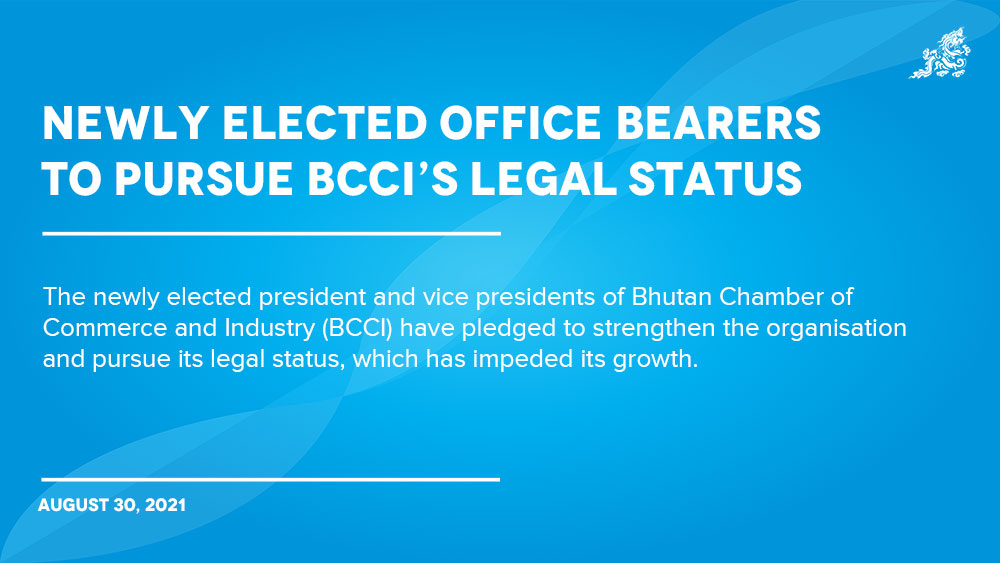MB Subba
The newly elected president and vice presidents of Bhutan Chamber of Commerce and Industry (BCCI) have pledged to strengthen the organisation and pursue its legal status, which has impeded its growth.
The newly elected president of BCCI, Tandin Wangchuk, said the chamber had inconveniences dealing with organisations outside the country due to the lack of its legal status.
The umbrella organisation of the country’s private sector also needed to make it better recognized in society, as many people in the private sector did not take its membership.
The issue of the legality of the chamber as an organisation was also highlighted in the performance audit report covering the period from January 2013 to December 2017.
In absence of a legal basis, questions on the legality of documents and MoUs signed by BCCI with entities outside the country were raised. The report found that there was no clear legal mandate and legitimacy for its operation.
The office bearers were elected on August 27 in Thimphu.
He said that much needed to be done to help the businesses that have been affected by the pandemic and that he would push for policy reforms for the private sector.
“BCCI will also create awareness among businesses and aspiring entrepreneurs about various fiscal schemes such as the priority sector lending (PSL),” he said.
The BCCI, he said, would also establish a one-stop shop that will provide business-related services to its members in Thimphu. “That one-stop shop will do the follow up works on behalf of the members if they send the documents,” he said, adding that people from dzongkhags will not have to come to Thimphu.
Tandin Wanchuk also said that many people did not recognise the BCCI due to the lack of its legal status.
One of the vice presidents, Kamal Pradhan, from Gelephu said that the chamber would work towards bringing more people from the private sector on board. He said that all the people in the private sector needed to work together to unleash the potential of the private sector and enhance the significance of BCCI.
The vice president said that the cottage and small industries (CSIs) were not performing well although they were one of the major drivers of the economy.
The other vice president, Ugyen Dorji, from Bumthang said that the chamber needed better support from the government on the policy front to improve the private sector.
“We (BCCI) are sometimes used as a tool and shield,” he said, explaining that the government had used the chamber to suit its needs. “We want to work as a team for the benefit of the private sector.”
The president and vice presidents are highly contested posts although they do not get salaries. However, a BCCI member said that the office bearers could make significant contributions to policies for the private sector.
The BCCI was established under the Royal Command of His Majesty the King in 1980 and is a non-profit organization consisting of members from the business community, and is the apex body of the private sector.
Edited by Tshering Palden


